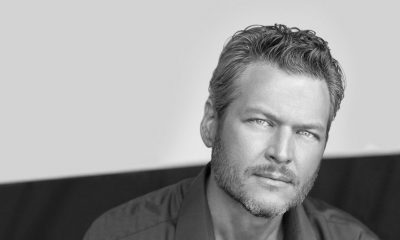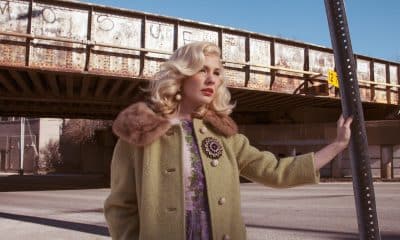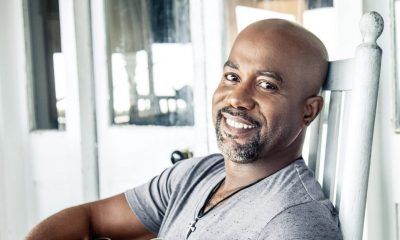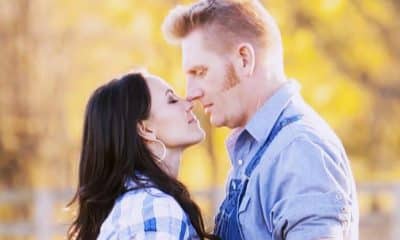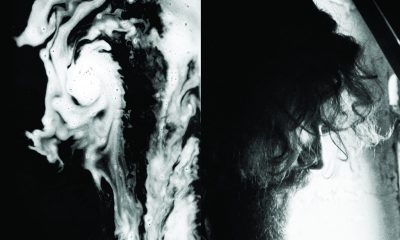Interviews
Q&A With Crystal Shawanda – Exclusive Interview

Crystal Shawanda grew up in the shadow of despair. A full-blooded Ojibwa, Shawanda was raised on the tiny Wikwemikong Unceeded Indian Reserve, a 160 square mile slice of land carved out of Ontario’s Manitoulin Island. It was a place, she remembers, where hopelessness was epidemic, where alcoholism and suicide were a way of life. A place where many could see no future, no sign of a brighter tomorrow, no new day dawning.
But Shawanda (whose last name literally means ‘dawn of a new day’), is a breathing beacon of hope, living proof that dreams dreamed at any point on the globe, no matter how desolate, no matter how downtrodden, can, with a little bit of hope and whole lot of hard work, come true.
Jim Malec: What were the winters like on Manitoulin Island, where you grew up?
Crystal Shawanda: They were pretty cold. Actually, I can remember them, when I was younger, to have a lot more snow. It doesn’t seem like there’s as much these days. But then again, I’m not there a lot anymore. It was a lot of snow, a lot of ice, and we went outside a lot. We didn’t spend too much time indoors. We were outside snowmobiling, sliding. I’m an outdoors kid–we had two channels on the TV, so I spent a lot of time outside.
JM: At what age did you start snowmobiling?
CS: I don’t even remember! My dad used to have a snowmobile, I think I was six or something–
JM: –Wow.
CS: I didn’t drive it! We would hook up things behind it and ride behind it.
JM: Let me ask you about something in your artist bio–which you penned yourself. You wrote: “I wrote my first song at 9, not knowing that songwriting would become my way of coping with the hopelessness I saw around me on the reservation. Growing up, I watched too many people lose hope and leave this earth…including cousins and many friends of mine. I watched as my brothers lost almost every childhood friend before they were 16.”
When you write that you watched people “lose hope and leave this earth,” are you referring to suicide?
CS: Yeah.
JM: Why do you think there was such hopelessness on the reservation? Was it economic? Psychological? What were some of the things you witnessed that made people lose hope?
CS: I think it was a combination of everything. The reservation where I grew up—I know I say this again and again—it’s a lot like small town America and Canada in a sense. There aren’t a lot of jobs there, there is no economy, there’s nothing to do, nothing to look forward to, and there doesn’t seem to be an end in sight. And you know, sometimes it’s…
On my particular reservation, I think a lot of it was a chain reaction from things that have happened in the past. A lot of it is psychological. And I think some of us didn’t even realize it. I grew up seeing this hopelessness set in with not just some of my family members, but also my friends’ family members. And I actually consider myself one of the luckiest kids on the reserve. There were a lot of kids who had it way worse than I did. There were some people who suffered from alcoholism and depression in my family, but there were a lot of strong people who carried the whole family through. And I was very lucky that I was from a very close family, because we are so involved in each other’s lives and we’re always there for each other, and we’re always so supportive. I think that’s the only reason I came out of that with a good frame of mind.
JM: You also wrote in your bio about Loretta Lynn being very important to both you and your mom. What is your earliest memory of Loretta Lynn? Is there a song that your mom used to sing, or an album that she used to play over and over, or something, musically, that really moved and spoke to a young Crystal?
CS: She played everything. She had a huge Loretta Lynn record collection. And what she played would always change. It depended what mood she was in. I think the album that really affected me the most, though, was Blue Kentucky Girl. Everything though. That’s what I love about Loretta Lynn–every single one of her songs captures a moment in your life or captures a feeling that you’re going through, and it’s all very honest and very real. And very vulnerable.
Watching my mom…even as a kid I could see that she found comfort in [Lynn’s] music. And even almost a friendship. I’d seen Loretta Lynn getting my mom through some tough times. I always wanted to do that for somebody else.
JM: Was music an important part of your community on the reservation? And, if so, does the music that you grew up around as a kid influence the music you make now?
CS: Definitely. There was a lot of music, both traditional and country. And there were a lot of teenagers who would start rock bands and stuff. They also had a lot of variety shows and talent shows—they used to have them a lot when I was a kid.
And then there was this group of musicians who would get together and play acoustic guitars and fiddles, and they’d all sing. Every single one of them was a singer. And I was drawn to them. They would actually come over to my house a lot and we would all jam out in my basement. I suppose it must have been pretty odd to have this eleven year-old kid jamming out with nobody under the age of forty. That was my favorite thing in the whole wide world to do. I struggled to find common ground with people my own age, and I found common ground in anybody that was involved with music.
I also spent a lot of time going to powwows, and my brother would listen to a lot of traditional drum music at home. I think the passion that’s within the traditional music, and the realness that’s in country music, is definitely…it’s all a combination of what my music is today.
JM: Your dad drove a truck, and you used to ride along with him when he had to make a run to Nashville. It must have been great spending that time with him. Do you have a lot of stories from your road trips?
CS: It was amazing. It opened up a whole new world to me and it made me curious to travel. I definitely credit my dad for giving me that yearn to wander, and to travel and to see things and to keep moving. I definitely get that from him. And my parents are the kind of people who love to turn work into fun, and I think that’s what my dad saw his truck driving job as, as a way to bring us out of the reservation and to see what was out there in the world. And it was always very important to both of my parents that me and my brothers understood that we had choices. And, if we wanted to, that there was a whole big world out there for us to discover.
I’ve seen a lot of the world driving in his transport, and it made me realize that if you want to get somewhere, all you’ve gotta do is get in the car and go.
JM: Speaking of Nashville, you recorded your first demo there when you were 12, right?
CS: Yes.
JM: Those were songs you had written yourself?
CS: Yeah. All the songs that were on that album, I started writing them when I was nine. I had a lot of songs done by the time I was twelve, but I narrowed it down to the eight that made the album. Now, when I listen to them, I kinda laugh because I’m talking about things that I shouldn’t even know about. You know, because I grew up listening to Loretta Lynn and Hank Williams and Johnny Cash, and I’d seen people in my family going through the same things that they were singing about in their music. So, for me, it felt natural that that was what I was supposed to sing and that that what I was supposed to write. And, even as a kid, I didn’t think it was weird to be singing about mature things. I’ve always seen myself as, or considered myself, a storyteller. It dates back to the traditional days within my culture–within a community there were always storytellers. As a young child I learned that, and so I kinda applied that to how I would approach a song.
JM: What’s an example of some of those lyrics that you laugh about now? What’s one of those things you say you shouldn’t have known about?
CS: There were a couple of songs about cheating, and a couple of songs about…well there were a lot of cheating songs. [Laughter]. I don’t know what that says. I don’t know, some of the lyrics were…ah, I can’t even remember any of my own songs! But, believe me, they’re very mature!
JM: The first time you sang at Tootsies the owner offered you a regular gig. You turned it down. Tell me about that.
CS: Well, the first time he offered me a gig I was thirteen years old. And I didn’t even live in Nashville. So I kinda didn’t have a choice. I probably would have took the gig if I lived there. Or I would have tried to. But when I moved to Nashville the first time, I was sixteen years old, and when I came back to Tootsies again he offered again. Actually, every time I came in to Tootsies he’d always say, “Are you ready to come work for me yet?” And I would always tell him no, I’m not ready yet.
And I guess for me, the way I felt was, if I wanted to get up on that stage where all these wonderful musicians were up there pouring their hearts out, then I needed to bring something to the table. I needed to live in Nashville and learn from them and watch them and listen to them. I needed to figure out who I was as an artist, so I could know, you know, who do I want to be on that stage? Who am I really? And I wanted to stay true to that, I didn’t want to just get up there and be a singing jukebox. That was really important to me, to learn from the masters who were down there on Broadway, you know, living it every day. So, for me, I wanted to have the right songs and I wanted to get the right band together.
And then I finally got to that point where I was like, I need to just hit it strait on. Just go with it. And, obviously, as an artist, I’ll keep evolving and I’ll keep learning, but I definitely learned the most while I was playing at Tootsies.
JM: I read somewhere that someone told you that you sing like you were born with a broken heart. Who told you that, and do you think it’s a fitting description?
CS: That was Jim McBride.
I think, to an extent, it is a good description. I’m very open with the fact that I’ve always let music be the way I deal with things, and all the feelings that I keep inside of me, I let them out on stage. Everything from the past, everything that’s happening in my present-day. And I think I sing for those who can’t, or can’t anymore—people who…
I really let people’s stories affect me. Not only my family, but people in my community. People I’ve met along the way. Stories that I hear on TV or that I read in a book. There’s a lot of pain in the world. And I can identify with that.
JM: What did you hope to achieve, artistically, with the record, Dawn Of A New Day?
CS: I think we just wanted to capture a combination of everything that I am as an artist and that I am as a person. The whole album is very passionate. It’s emotional. It’s very real. It’s honest and it’s vulnerable. And I’m really proud of the fact that every single story on this album, every single song, is, in it’s own way, a message of hope. I just truly believe that no matter what your background is, you’re gonna be able to connect with every single song on this album. It might help you through a tough day or it might be something to sing along to on a great day. It’s about real life and being able to laugh at it.
JM: Tell me about the album’s opening track, the song “Evolution.”
CS: I didn’t write it. But when I heard that song, I was like, “Hey, somebody’s been stalking me.” It felt like I could have written that song because every single line is very true and very real. It’s very me.
JM: Is that your favorite song on the album?
CS: I couldn’t possibly pick a favorite song on the album. It really depends on what kind of day I’m having, or what mood I’m in. They’re all my favorite, they’re all special in their own way. I mean, I’m really proud of the fact that with this album I didn’t just say, “Ok, I’ve got a record deal, let’s get an album out as soon as possible.”
It was kinda like, if I had the chance to say one thing, if I had one chance to say onething, what would I want to say? And I think we captured that on this album.
JM: It’s a little unusual, in the current radio climate, to debut as an artist with a ballad like, “You Can Let Go.” Tell me about that song and why it was chosen as the first single?
CS: Because it is so powerful. For me, I didn’t even think about whether we should pick and uptempo or a ballad. For me, it was kinda like, “Here’s this amazing song that I connect to in every way and that takes me a million different directions.” And if it brings that out of me, what could it bring out of other people?
JM: What is country music?
CS: It’s a way of life. It’s common ground to stand on so that we don’t feel alone. And it’s cheap therapy.
- Lists13 years ago
Top 10 Country Music Albums of 2010
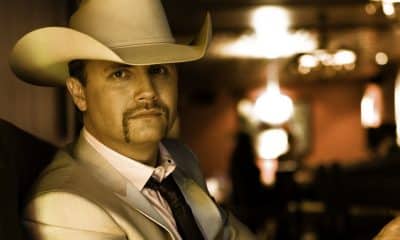
 Interviews5 years ago
Interviews5 years agoJohn Rich – The Interview
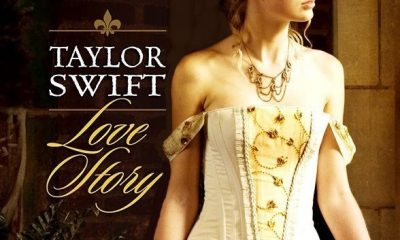
 Song Reviews16 years ago
Song Reviews16 years agoTaylor Swift – “Love Story”
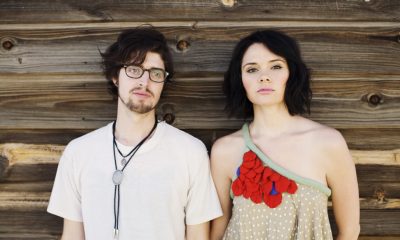
 Interviews5 years ago
Interviews5 years agoHoneyhoney on Hiatus: Revisit our 2008 Interview with Suzanne Santo
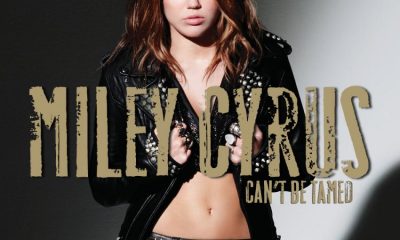
 Album Reviews14 years ago
Album Reviews14 years agoAlbum Review: Miley Cyrus – Can’t Be Tamed
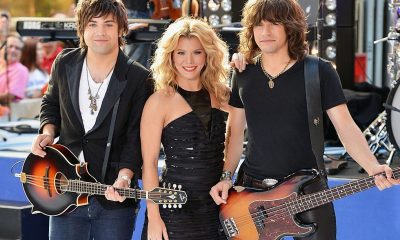
 Song Reviews6 years ago
Song Reviews6 years agoThe Band Perry – “Hip To My Heart”
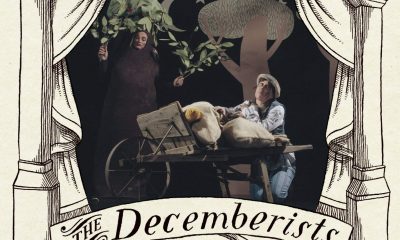
 Columns5 years ago
Columns5 years agoThe Link Between Folk Music’s Past and Present
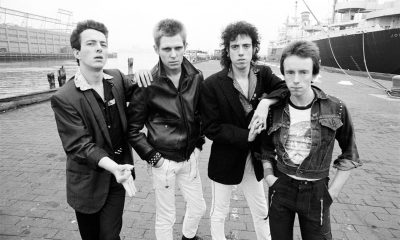
 Columns5 years ago
Columns5 years agoIs Marketing Killing Rock and Roll?


